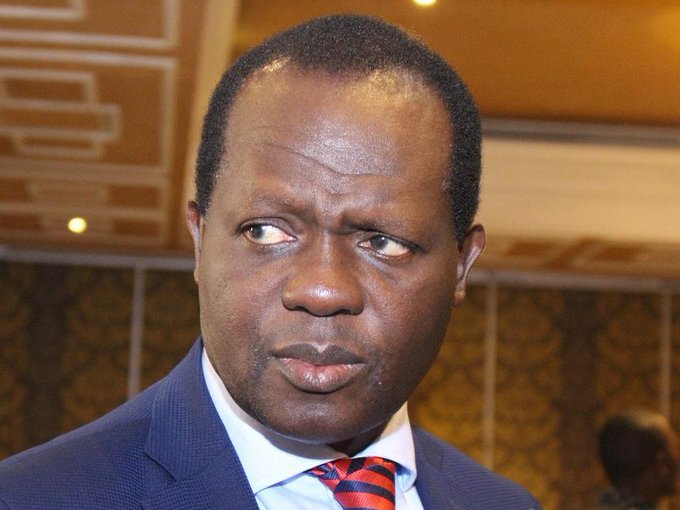Two months after former Education Cabinet Secretary Ezekiel Machogu launched the Kenya Education Management Information System (KEMIS), it has yet to be fully operationalized. Speaking at the 2024 EdTech Summit, Dr Belio Kipsang, Principal Secretary at the Ministry of Education, attributed the delay to the ongoing expansion of the National Education Management Information System (NEMIS), which now aims to include all levels of education.
This expansion requires substantial investment in infrastructure, capacity building, and cybersecurity.
During his speech, delivered by Francis Karanja, Head of the National ICT, Innovation, and Integration Centre at the Ministry of Health, Kipsang explained that the National Education Sector Strategic Plan (NESSP) 2023-2027 has identified key risks, such as system vulnerabilities and capacity limitations, that must be addressed to ensure the long-term success of these educational platforms.
The EdTech Summit serves as a forum for stakeholders—educators, developers, policymakers, and investors—to explore trends, share insights, and showcase technology-driven solutions aimed at transforming education. It provides a platform to discuss how technology can improve learning outcomes and enhance education systems worldwide.
To accelerate the operationalization of KEMIS, Kipsang emphasized the importance of collaboration from all stakeholders, including development partners, the private sector, civil society, and educational institutions. He highlighted the need for a robust ecosystem that promotes data-driven education, enhances digital infrastructure, and equips educators with the necessary skills and resources.
“NESSP calls for public-private partnerships to close financing gaps in education,” Kipsang said. With a projected budget shortfall, the Ministry is seeking collaboration with non-state actors to mobilize resources and ensure the successful implementation of KEMIS.
The goal of these partnerships is to bridge financing gaps and ensure the smooth execution of educational initiatives. This collective effort will help overcome challenges and maximize opportunities for a more inclusive and efficient education system in Kenya.
Kipsang added that by integrating KEMIS into Kenya’s education framework, the government will be able to make data-informed decisions that promote a more equitable and prosperous future for learners. Unlike NEMIS, which focuses on primary and secondary learners, KEMIS will cover all learners from pre-primary to Technical and Vocational Education and Training (TVET) and higher education institutions. This expansion will provide a comprehensive view of the education ecosystem and ensure that all sectors are properly supported.
However, Kipsang cautioned that the expansion of these systems also comes with challenges related to system maintenance, security, and capacity limitations. He assured that a legal and institutional framework is being developed to safeguard the integrity of these systems.
The NESSP 2023-2027 envisions equitable access to quality education at all levels, from pre-primary to higher education. A key component of this vision is data-driven decision-making, with KEMIS providing real-time data to guide the government’s decisions on education, addressing disparities in resource allocation, and improving overall educational quality.
Under NESSP, data is not just a monitoring tool but a key driver of policy development. The plan stresses the importance of Monitoring, Evaluation, and Reporting (MER) systems across all educational programs. Through these systems, the government can regularly assess the impact of various initiatives and make adjustments to ensure their effectiveness.





